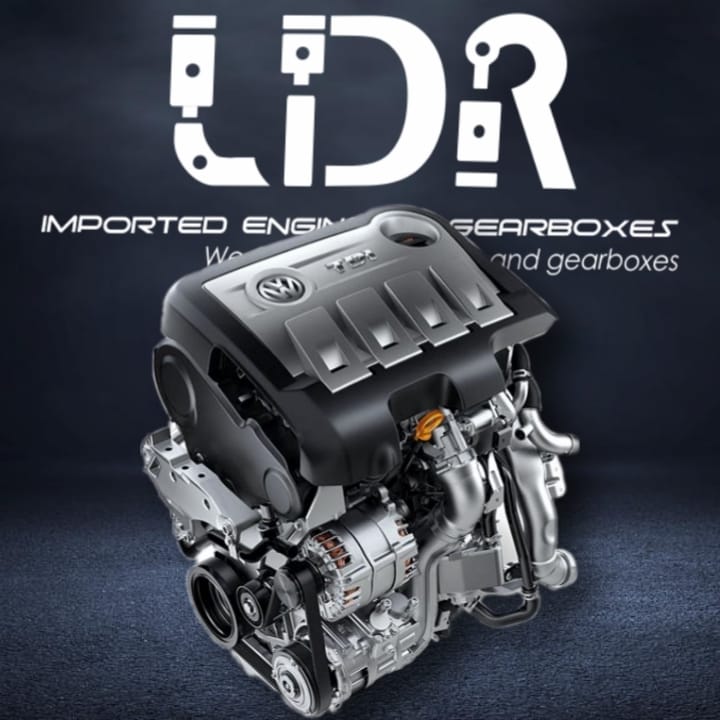Opening the Complete Potential of the Polo 4 Engine in Your Car
Opening the Complete Potential of the Polo 4 Engine in Your Car
Blog Article
Tips for Preserving a High-Performance Engine in Your Polo 4
Maintaining a high-performance engine in your Polo 4 requires a methodical strategy to make sure long life and efficiency. As we explore these necessary maintenance tips, think about how each one adds to the overall wellness of your engine.
Routine Oil Modifications
How usually should you prioritize oil modifications for optimum engine performance? Routine oil adjustments are essential for keeping the health and effectiveness of your Polo 4's engine.
Regular oil adjustments help eliminate impurities and sludge that accumulate in time, ensuring that your engine operates efficiently. Tidy oil lubes the internal components, minimizing rubbing and wear, which straight adds to the longevity and performance of the engine. Disregarding this vital maintenance can result in boosted engine temperature levels and inevitably cause costly repairs.
In addition, keeping an eye on the oil level and high quality routinely can offer insights into your engine's condition. If the oil appears dark and sandy or if the degree is continually reduced, it might show underlying concerns that require attending to. Focusing on routine oil modifications is an uncomplicated yet important action in guaranteeing that your Polo 4 delivers ideal efficiency, effectiveness, and dependability throughout its life-span.
Air Filter Upkeep
The air filter in your Polo 4 plays a vital duty in preserving engine performance, as it ensures that only tidy air gets in the engine for ideal combustion. A clean air filter enables for enhanced air flow, which can boost engine performance and power result. Neglecting air filter maintenance can bring about lowered efficiency, raised gas consumption, and potential engine damages.
To keep the air filter, it is necessary to examine it on a regular basis, ideally every 10,000 to 15,000 miles or as advised in your proprietor's handbook. When evaluating the air filter, seek indicators of dirt accumulation, damages, or too much wear. It needs to be replaced to make sure proper air flow. if the filter shows up unclean or stopped up.
When replacing the air filter, always utilize a top quality OEM or suitable filter to maintain the engine's performance requirements. In addition, consider cleaning up the air filter if it is reusable, complying with the producer's guidelines for cleansing and reinstallation.
Gas System Treatment
Regular fuel system treatment is crucial for maintaining the performance and durability of your Polo 4's engine. A tidy and efficient fuel system makes sure optimum gas burning, enhancing engine power and fuel effectiveness. Begin by routinely examining and replacing the fuel filter, as a stopped up filter can limit gas circulation, leading to engine performance issues. It is typically a good idea to replace the fuel filter every 30,000 miles or as specified in your car's handbook.
Additionally, consider making use of high-grade gas Your Domain Name which contains cleaning agents developed to keep your gas injectors tidy. In time, deposits can gather in the gas system, bring about inadequate engine performance and increased exhausts. To battle this, integrate a fuel system cleaner occasionally to eliminate these deposits and maintain injector performance.
Additionally, examine fuel lines for any kind of indications of leaks or use, as damaged lines can bring about sustain loss and safety dangers. Ultimately, make sure that the fuel tank is maintained least a quarter complete to avoid sediment from obstructing the fuel filter and to keep the fuel pump's air conditioning ability. By adhering to these techniques, you can ensure that your gas system remains in peak problem, adding top article to the general efficiency of your Polo 4.
Air Conditioning System Checks
Guaranteeing the air conditioning system in your Polo 4 operates effectively is vital for stopping engine overheating and preserving optimum performance (Polo 4). Routine checks of the air conditioning system components, including the radiator, pipes, and coolant degrees, are necessary to stay clear of pricey repair services and guarantee long life
Begin by examining the coolant level in the tank. It needs to drop within the advised range; if it's low, top it up with the proper coolant combination. Next off, examine the condition of the pipes for any kind of indicators of wear, such as bulges or fractures, which might bring about leakages. Replacing damaged hoses quickly can stop engine damages.
Additionally, check the radiator for any particles or clogs that can restrain air movement. A tidy radiator promotes effective cooling. Take note of the thermostat as well; guarantee it opens up and shuts appropriately to control the engine temperature efficiently.

Verdict
In verdict, keeping a high-performance engine in the Polo 4 necessitates adherence to a structured maintenance regimen. These steps collectively contribute to ideal engine efficiency and longevity, making certain that the vehicle operates efficiently and reliably over time.
The air filter in your Polo 4 plays an essential role in maintaining engine performance, as it makes certain that only tidy air gets in the engine for optimal combustion. Ignoring air filter upkeep can lead to minimized efficiency, enhanced gas intake, and possible engine damages.

Report this page